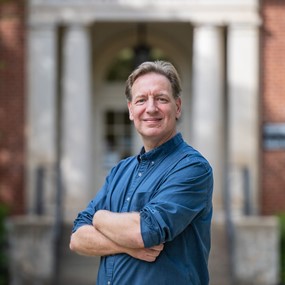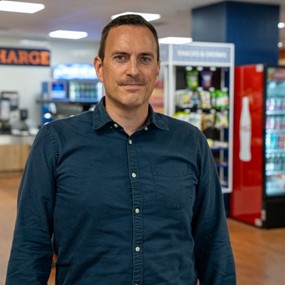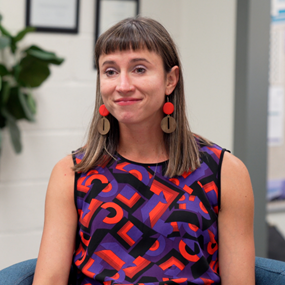Professor Kelly Krawczyk takes free and fair elections work from Auburn to Africa
Political science faculty in the College of Liberal Arts secure elections across the nation. Associate Professor Kelly Krawczyk elevates that work to an international scale with her research, teaching and outreach work in Africa.
Krawczyk has served as an international election observer for Ghana’s 2012 national election, Nigeria’s 2019 election and Liberia’s 2011 and 2017 elections, with plans to return to Liberia in fall 2023.
As an observer, Krawczyk collects data on poll place staffing, materials and vote counts. She also records if there is tension or threats of violence at a polling place and if a parallel vote count matches the original. Krawczyk provides that data to the country’s electoral management body to identify issues and improve elections quality.
“The whole point of election observation is to basically make a judgment on the quality of the election. So, is it a free and fair democratic election?” Krawczyk said. “Election observation is increasingly sophisticated. I think there is an increasing push for use of technology, even in developing country environments like Liberia. This technology includes biometric voter registration systems, used for the first time in Liberia for the upcoming 2023 election.”
The role of the nonprofit sector has also increased since Krawczyk began her work on the African continent. Called the civil society sector in Africa, these organizations assist citizens with how to register to vote, how to find a polling place and how to find information about candidates. Civil society organizations can also serve as election observers.
This fall, supported by an internal grant from the College of Liberal Arts, Krawczyk will conduct a field experiment on the civil society sector’s role in promoting political behavior in Africa, alongside her election observation work.
“For me to be able to do all those things, it brings my research, teaching and outreach all together,” Krawczyk said. “I’m engaged in research in this area. I’m taking students from my classes to go do the things that are happening related to elections on the African continent, and then it is pulling in my own outreach as well.”
Krawczyk first visited Africa while she was a Ph.D. student in 2011 to serve as an election observer for Liberia’s presidential election. At Auburn, she sought to recreate that experience for future students by introducing a course that includes a short-term study abroad component.
Students in her class will travel to Liberia and partner with students from the African Methodist Episcopal University for a seminar and election observation.
Krawczyk hopes the hands-on experience is as impactful for Auburn students as it was for her more than a decade ago.
“I’ve never forgotten about that opportunity and what it meant to me. It literally set me on a path for the academic career I have now, for the research I engage in and for the outreach I engage in to try to help communities figure out ways to solve those problems,” Krawczyk said. “The one thing I always promised I would do is I would give my students the same opportunity that my major professor gave me. So that’s why the class that I’ve developed while here at Auburn is so important to me.”
Tags: Political Science Community, Outreach and Engagement Research






